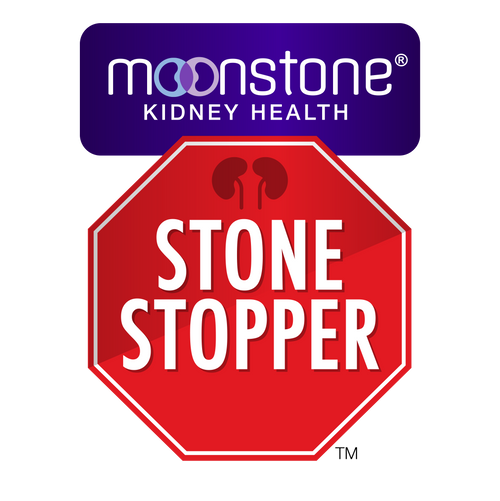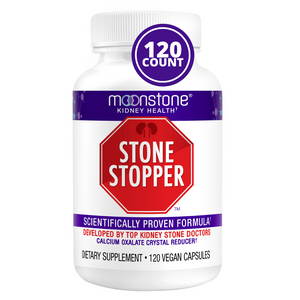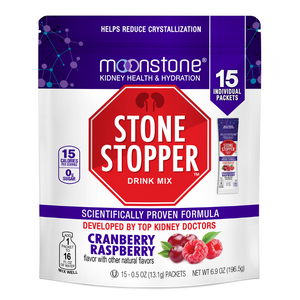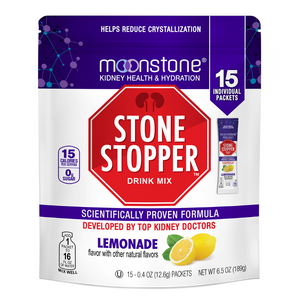Chronic kidney disease (CKD) is on the rise. It is a worsening loss of kidney function over several years. It progresses slowly, but can eventually result in kidney failure.
Chronic kidney disease increased by an astonishing 41% between 1990 and 2017. In 2017 alone, 700 million people worldwide had CKD, and 1.2 million people died from it. An additional 1.36 million people died of cardiovascular disease resulting from impaired kidney function in 2017. A 2018 NIH report stated that CKD affects10.5% of the world’s (adult) population.
Since many cases of CKD are preventable and since medical breakthroughs occur all the time, it would be heartening to note improved statistics in the years since 2017, but sadly, that is not the case. A Lancet research study (sponsored by AstraZeneca) of data from 2.4 million patients with CKD found that between 2018-2021 more than 850 million people suffered from the disease. This is 10.8% of the world’s population.
The Figures Don't Lie
When you look at the figures from only the United States, these dire statistics are even more concerning: 15% of adults in the U.S. have CKD (which they may or may not be aware of). That works out to more than 1 out of every 7 adults.
All of these statistics err on the low side. Chronic Kidney Disease is a slow loss of kidney function, and most people are not even aware that there is a problem until late in the disease when they develop symptoms. According to the National Kidney Foundation, 90% of people with CKD don’t even know that they have it. Even those with severely reduced kidney function may not be aware of it; the CDC says that 40% of people in this condition have no idea. By the time they develop symptoms and begin to feel unwell, their kidneys are almost unable to remove waste from the body, and the unwitting CKD sufferers find that they are in end-stage kidney disease (ESKD). Unfortunately, at that point, the only two options are dialysis and/or a kidney transplant.
Why Is CKD on the Rise?
This is an important question to ask. Why is Chronic Kidney Disease (CKD) Is on the Rise? Most other non-communicable diseases have decreased their number of deaths in the past 25 years, so why are the numbers rising? Let’s look at the risk factors for CKD:
Diabetes
10.5% of the population of the United States has diabetes. This is a condition where the body isn’t able to make or effectively use insulin, prompting elevated levels of blood glucose (sugar). 5-10% of U.S. diabetics have type 1 diabetes, which is an autoimmune reaction and is not preventable. The remaining 90-95% of diabetics suffer from type 2 diabetes, or adult-onset diabetes, which is influenced by genetics but is also caused by obesity and lack of physical activity.
High blood pressure
Approximately 50% of American adults have high blood pressure. This is a condition where the force placed on blood vessels is increased. This increased force can damage blood vessels. Damaged, narrowed, or constricted blood vessels in the kidneys can prevent them from working properly.
Heart disease
Risk factors for heart disease include being overweight, smoking, drinking alcohol excessively, diabetes, and lack of physical activity. Heart disease is a risk factor for kidney disease, but it can cause heart disease, so they are inextricably linked.
Lupus
Lupus is an autoimmune disease where the body attacks itself. The type of lupus that attacks the kidneys (lupus nephritis) causes the small blood vessels in the kidneys to become inflamed. This affects their ability to filter waste from the body.
Family history of kidney failure
The most common type of genetic kidney disease is called ADPKD (autosomal dominant polycystic kidney disease, an inherited kidney disease); it is the 4th leading cause of kidney disease, responsible for about 10% of kidney failure.
It’s not possible to go back in time and change your family’s medical history, but the first three risk factors can be controlled to an extent.
How to Avoid Chronic Kidney Disease
Since kidney damage from CKD is usually permanent, the time to start thinking about positive steps is before reaching end-stage kidney disease, where dialysis or a kidney transplant becomes necessary. How to reduce CKD risk factors:
High blood pressure:
- This can be a risk factor for kidney disease; conversely, it may itself be caused by kidney disease. Your doctor may prescribe medication to lower high blood pressure, but it is also a good idea to make lifestyle choices that can lower blood pressure.
- Losing weight can help lower blood pressure; in fact, the Mayo Clinic states that for every kilogram (approximately 2.2 pounds) of weight lost, blood pressure “might go down by about 1 millimeter of mercury (mm Hg).”
- Eat foods that are healthy for your kidneys. This means reduced sodium, protein, and fats, and more fruits, vegetables, and whole grains.
- Reduce your salt intake. Even if you reduce salt in your meals or begin cooking without salt, you may still be consuming too much sodium if you eat processed foods. Reading nutrition labels is essential.
- Regular exercise can lower blood pressure (and help you lose weight). This can involve aerobic exercise, high-intensity training, and strength training. You should always consult with your doctor before beginning an exercise regimen, particularly if you haven’t been active before.
Smoking Increases Risk!
- Do not smoke. There are so many reasons not to smoke. Everyone is aware of the increased risk of lung cancer, but smoking also causes a temporary rise in blood pressure. Additionally, it damages the walls of your blood vessels.
- Avoid (or limit) alcohol: Alcohol contains calories, so it can make you gain weight. Drinking too much alcohol can raise your blood pressure.
- Get enough sleep. Your body needs sleep for many reasons, some of which affect your blood pressure directly. If you have a Fitbit-type device, you may have noticed the category called “Restoration.” This measures the percentage of the night when your heart rate is below your normal resting rate. Your blood pressure should go down while you are asleep. If you are having sleep problems, your heart may be working harder.
- Manage your stress levels: Difficult or stressful situations cause your body to release hormones that raise your blood pressure. Try to avoid stress as much as possible. Many people have found that meditation, yoga, or deep breathing lowers their stress levels. Regular exercise can have the same effect.
Anemia
- Anemia is when you don’t have enough red blood cells; red blood cells are important because they carry oxygen to the tissues in your body. With CKD, kidneys can’t make enough of the hormone called EPO (erythropoietin), which causes your red blood cell count to drop. Anemia is common in CKD patients, especially as the disease progresses. More than 1 out of 7 people with CKD are anemic. Anemia can make you feel dizzy, fatigued, or short of breath. You may also feel your heart beating quickly.
- A common treatment for anemia caused by CKD is the injections of agents (ESAs) to stimulate the bone marrow to make more red blood cells.
Phosphorus and calcium balance
- These two minerals are important for cell and nerve function, as well as for maintaining strong bones and teeth. Kidneys need to keep both of these minerals at appropriate levels, and with CKD, they are less able to regulate them. As a result, you end up with too much phosphorus and not enough calcium.
- Phosphorus can’t be avoided completely because it is in so many foods. However, it is possible to eat a diet that avoids foods that are highest in them. You can read more details about a kidney-friendly diet in our article, How to Prevent Kidney Stones With a Renal Diet.
Fluid retention
- Kidneys are responsible for removing waste and excess fluid from the body, but they cannot do this properly in patients with CKD. The excess fluid can cause swelling in your hands, feet, or face.
- Doctors prescribe diuretics to reduce swelling (edema) and to lower blood pressure.
- It is also important to stick to a low sodium diet.
Cholesterol
- High cholesterol is associated with disease of the blood vessels, or atherosclerosis.
- While statins, the most commonly prescribed medication class for high cholesterol won’t necessarily prevent progressive CKD, they can reduce the heart attacks and strokes that often occur in people with CKD.
Many factors in chronic kidney disease are beyond your control. However, heart disease and diabetes are the two leading causes of kidney disease. According to the CDC, they account for 75% of all new cases. And both heart disease and diabetes can be controlled by a myriad of daily decisions that are within your control.
- Always consult with your doctor regularly and follow his or her advice.
- Work to control your blood pressure. It should be below 140/90.
- Pay close attention to your blood glucose levels if you have diabetes.
- Get regular and sufficient sleep.
- Try to keep your weight at a healthy level by remaining physically active and eating a healthy diet.
A Kidney-Friendly Diet
Eat and drink less of these:
- Sodium
- Alcohol
- Saturated fats
- Animal protein
- Dairy
- Dark colored sodas
Eat and drink more of these:
- Whole grains such as barley, buckwheat, and bulgar
- Fruits such as apples, blackberries, and blueberries
- Vegetables such as cabbage, cucumbers, and eggplant
- Fish or seafood
- Eggs
- Water
Kidney Stones and CKD
What is the connection between kidney stones and chronic kidney disease? People who have suffered from one kidney stone are more likely (at a 50% risk) to have another one within 5-7 years. And people who have kidney stones are at an increased risk of developing chronic kidney disease. Lifestyle changes are important in avoiding both CKD and kidney stones.
Another solution for avoiding kidney stones is the alkali citrate found in Moonstone Stone Stopper.
Moonstone is the first patented formula to help prevent kidney stones and maintain daily support for kidney health. The News section at Moonstone Nutrition contains a wealth of information to help you with your kidney health.





